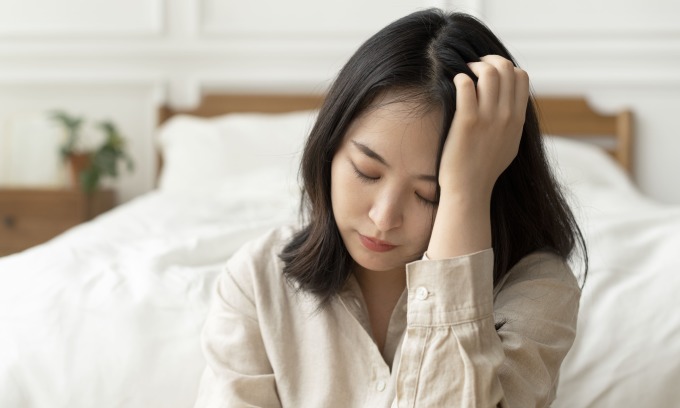Mr Tan, a 35-year-old resident of Hanoi's Tay Ho district, has been experiencing headaches, runny nose, occasional shortness of breath and heart palpitations. Her anxiety about her stroke risk was heightened by her sister's stroke-related death and by online searches for a link between headaches and brain blood clots, and despite routine screening tests being performed at multiple medical facilities. However, it still continues. Her ongoing worries have led to her lack of sleep, fatigue, lack of concentration, and large medical bills.
Similarly, 29-year-old Tam, who lives in the capital's Cau Giay district, worries that he has a rare disease because of his headaches. Over the course of six months she underwent numerous brain scans and skin tests, and even though all showed normal results, she was still convinced that she had an undiagnosed disease, which left her feeling frustrated and distressed. ing.
Thanh and Tam are among the many patients at Hanoi's Mai Phuong Daytime Psychiatric Hospital seeking treatment for their persistent fear of illness.
The hospital's vice president, Dr. Tran Thi Hong Thu, said the patients were suffering from illness anxiety disorder, or hypochondria, which is characterized by an excessive fear of illness despite mild symptoms. do. Although the prevalence of this disorder in Vietnam is not officially documented, it has been observed to be high.
People with this disorder often mistake normal physical sensations and minor symptoms for a serious illness. They check themselves frequently, doubt doctors' diagnoses, and either seek ongoing medical check-ups or avoid medical check-ups altogether. Some people make their anxiety worse by persistently discussing their health concerns or researching them online.
|
Illness anxiety disorder, also known as hypochondria, can have a significant impact on an individual's life. Illustration photo by Freepik |
Tu explained that personal experiences and beliefs often influence the development of illness anxiety disorder. For example, people who experience a serious illness in childhood may develop a fear of bodily sensations later in life.
“People who have been sick before can develop this disorder, even if the symptoms are mild,” Tu added. “This experience can leave them with a persistent obsession and belief that any physical sensation can be a sign of a serious condition, and they constantly seek validation for this belief. ”
Research published in American Medical Association Journal In December 2023, people diagnosed with hypochondriasis can die from various diseases, especially those related to the heart, blood, and lungs, or commit suicide. The researchers found that those who were diagnosed had an 84% higher risk of dying than those who were undiagnosed.
Researcher David Mataix-Kols says in the following report: washington posthighlighted the irony of this situation: “They are overly concerned about health and mortality, which leads to an increased risk of death.''
Dr. Mattaix-Kols points out that people who suffer from illness anxiety disorder experience significant distress and feelings of hopelessness, which can have a profound impact on productivity, daily life, financial security, and relationships. I am. Chronic anxiety can cause inflammation and physical illness, and increase the risk of depression, substance abuse, and suicide.
Tu said the main treatment for the disorder is psychotherapy, particularly cognitive behavioral therapy (CBT), which helps patients identify the root cause of their symptoms and develop coping strategies. It is also effective in improving co-existing mental health conditions such as depression and obsessive-compulsive disorder.
In addition to psychotherapy, medications and lifestyle adjustments are also recommended. Patients are advised to eat clean, nutritious foods such as vegetables, fruits, lean meats, and fish, and to avoid processed, heavily flavored, oily, fatty, and sweet foods. , maintaining a healthy diet is recommended. It is also important to limit alcohol intake, stimulant drug use, and tobacco use.
We recommend getting enough sleep and establishing a routine of going to bed by 10pm every day. This will help you develop a relaxed mindset and avoid negative thoughts and tension. Approximately 30 minutes of regular physical activity each day is recommended to maintain good mental and physical health.
Additionally, we recommend a general health exam every six months to stay informed of any potential health issues.

